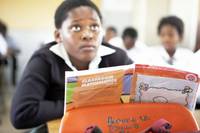The National School Effectiveness Study
The NSES research study aimed to identify lessons for policy and practice for government, principals, teachers, and parents. National policy lessons arising from any research study are most powerful if they can be shown to apply to the whole school population, and in order to address this consideration a nationally representative sample of 268 schools was drawn for the study. All provinces were included in the sample except Gauteng, which was excluded when it was discovered that provincial tests were being written at the same time as the first round of NSES data collection.
Learner performance, the dependent variable, was assessed by means of literacy and mathematics tests which were administered in English to the learners at the end of each year. We also administered a very short test in their respective subjects to maths and language teachers.
An asset-based method for assessing both school and learner socio-economic status (SES) was used, which has been demonstrated in other studies to provide a reliable proxy for SES. Learners were also given a questionnaire to describe the educational practices they experience at home: reading, homework, and exposure to the language of instruction of the school.
DATA from the study for research purposes can be accessed through DataFirst, a Research Unit and Data Service based at the University of Cape Town
Read more of The National School Effectiveness Study (NSES) Summary for the Synthesis Report by Nick Taylor.
See also HSRC Review, Volume 9, Number 3, September 2011.
More about the book: Creating Effective Schools, edited by Nick Taylor, Servaas ven der Berg and Thabo Mabogoane.

